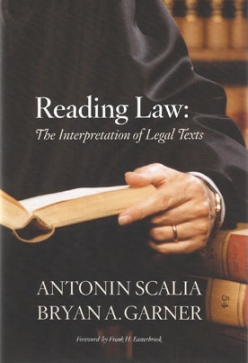- HOME
- INTRO TO THE FORUM
- USE AND MISUSE
- BADLY WRITTEN, BADLY SPOKEN
- GETTING
TO KNOW ENGLISH - PREPARING FOR ENGLISH PROFICIENCY TESTS
- GOING DEEPER INTO ENGLISH
- YOU ASKED ME THIS QUESTION
- ADVOCACIES
- EDUCATION AND TEACHING FORUM
- ADVICE AND DISSENT
- MY MEDIA ENGLISH WATCH
- STUDENTS' SOUNDING BOARD
- LANGUAGE HUMOR AT ITS FINEST
- THE LOUNGE
- NOTABLE WORKS BY OUR VERY OWN
- ESSAYS BY JOSE CARILLO
- Long Noun Forms Make Sentences Exasperatingly Difficult To Grasp
- Good Conversationalists Phrase Their Tag Questions With Finesse
- The Pronoun “None” Can Mean Either “Not One” Or “Not Any”
- A Rather Curious State Of Affairs In The Grammar Of “Do”-Questions
- Why I Consistently Use The Serial Comma
- Misuse Of “Lie” And “Lay” Punctures Many Writers’ Command Of English
- ABOUT JOSE CARILLO
- READINGS ABOUT LANGUAGE
- TIME OUT FROM ENGLISH GRAMMAR
- NEWS AND COMMENTARY
- BOOKSHOP
- ARCHIVES
Click here to recommend us!
READINGS IN LANGUAGE
This section features links to interesting, instructive, or thought-provoking readings about the English language and related disciplines. The selections could be anywhere from light and humorous to serious and scholarly, and they range widely from the reading, writing, listening, and speaking disciplines to the teaching and learning of English.
Hate, love for the “transvestite hermaphodite” that’s the semicolon
In “Semicolons: A Love Story,” an essay that came out in the Jul 2, 2012 issue of The New York Times, American writer Ben Dolnick reminisces about his teenage decision as an aspiring writer not to use the semicolon ever. This was when he came across this piece of grammar advice from his favorite novelist, the late Kurt Vonnegut: “Do not use semicolons. They are transvestite hermaphrodites representing absolutely nothing. All they do is show you’ve been to college.”
“Vonnegut’s dismissal of semicolons… struck me as more than a mere matter of style,” Dolnick remembers. “This was, like his refusal to describe his war experience in heroic terms, a demonstration of virtue. To abjure semicolons was to declare oneself pure of heart, steely-eyed, sadly disillusioned.”
Now an accomplished writer on his own, Dolnick says it was his rather recent encounter with the English prose of William James that finally made him shake off his disdain for the semicolon: “For the past year or two I’ve had on my nightstand a fat Library of America collection of his writing, and it took me a while to realize that one of the things I was loving about it — one of the things that made me feel as if I was sitting beside a particularly intelligent, humane and excitable friend on a long trip in a horse-drawn carriage — was his use of semicolons… Semicolons, along with exclamation points and dashes and whole sackfuls of commas, are, for him, vital tools in keeping what he called the ‘stream of thought’ from appearing to the reader as a wild torrent.”
Read Ben Dolnick’s “Semicolons: A Love Story” in The New York Times now!
OTHER INTERESTING READINGS:
Improving the English of lawyers. In “Writing with Antonin Scalia, Grammar Nerd,” an article that came out in the July 16, 2012 issue of The New Yorker, staff writer Alex Carp tells about the productive and collegial collaboration between American Supreme Court Justice Antonin Scala and lawyer and writer Bryan A. Garner, who is editor-in-chief of Black’s Law Dictionary and author of Oxford’s Modern American Usage. The two have since coauthored two books on legal language, Making Your Case: The Art of Persuading Judges (2008: Thomson West, 269 pages) and Reading Law: The Interpretation of Legal Texts (2012: West Group, 608 pages). Says Garner about the English grammar of the target readers of his collaborative efforts with Justice Scalia: “Word for word, lawyers are the most highly paid professional writers in the world. But the literary tradition in the profession is probably the worst.”

Read Alex Carp’s “Writing with Antonin Scalia, Grammar Nerd” in The New Yorker now!
Saving dying languages. To help protect the world’s over 3,000 endangered languages, Google launched in Mexico last July 17 an online information exchange platform to try to save the world’s more than 3,000 endangered languages from eminent extinction. The online platform, endangeredlanguages.com, aims to help improve the exchange of digital source materials in languages spoken by small numbers of people. By allowing users of these endangered languages to share text, videos, photos and audio files, Google hopes that these languages will get a new lease of life and make their long-term survival possible.
Read Agence France-Presse’s “Endangered languages get a Google protection plan” story now!
Click to read comments or post a comment
View the complete list of postings in this section
(requires registration to post)





